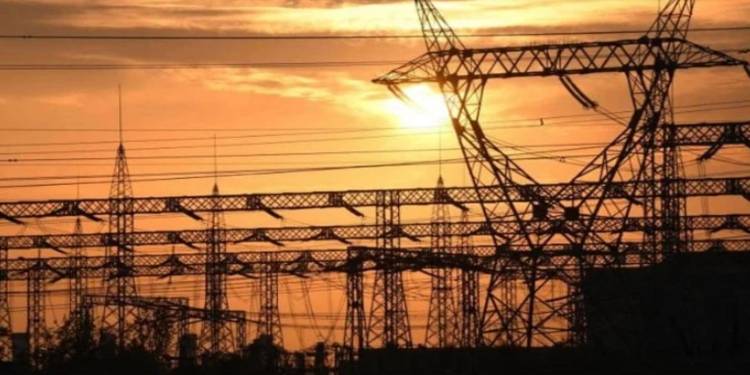
In a bid to unlock the $6.5 billion Extended Fund Facility (EFF) to stabilize the ailing economy, Pakistan has accepted another demand of the International Monetary Fund (IMF) demand of imposing a power surcharge of up to Rs3.23 per unit in the next fiscal year 2023-24 on the consumers.
The Pakistani officials are making hectic efforts to please the IMF which has set new conditions to revive the loan program.
The government has already approved a Rs3.39 per unit additional surcharge for the remaining four months (March to June) of the ongoing fiscal year and is currently passing through regulatory procedures for notification.
The country is taking important steps to obtain a $1 billion tranche from the IMF under the EFF's ninth review. Raising taxes is one of the measures, along with eliminating blanket subsidies and unnatural exchange rate restraints.
The IMF had demanded a total surcharge of Rs3.82 per unit to eliminate one aspect of the circular debt accumulation. Finance Minister Ishaq Dar had on last Wednesday refused to accept the IMF’s demand but caved in after one week.
This power surcharge will also be applicable to power consumers of K-Electric.
The ECC approved tariff rationalization for K-Electric by adjustments on the consumption from July 2022 to September 2022 and to recover from consumers from March 2023 to May 2023, respectively.
It also approved the enhancement of the surcharge for the financial year 2024 to cover federal government obligations towards power producers.
During FY24, K-Electric customers will also be subject to these surcharges in order to maintain uniform pricing across the country.
Tariff increase for residential consumers of Rs1.55 per kWh for the second quarter of 2021-22 and another increase ranging from Rs1.4 per kWh to Rs 4.45 per kWh for the first quarter of 2022-23 depending on usage of units.
The State Bank of Pakistan’s monetary policy committee is meeting today (Thursday) to fulfill another condition of the IMF to raise the interest rates. The central bank on Wednesday let the rupee depreciate to nearly Rs267 to a dollar to meet yet another demand.
The Pakistani officials are making hectic efforts to please the IMF which has set new conditions to revive the loan program.
The government has already approved a Rs3.39 per unit additional surcharge for the remaining four months (March to June) of the ongoing fiscal year and is currently passing through regulatory procedures for notification.
The country is taking important steps to obtain a $1 billion tranche from the IMF under the EFF's ninth review. Raising taxes is one of the measures, along with eliminating blanket subsidies and unnatural exchange rate restraints.
The IMF had demanded a total surcharge of Rs3.82 per unit to eliminate one aspect of the circular debt accumulation. Finance Minister Ishaq Dar had on last Wednesday refused to accept the IMF’s demand but caved in after one week.
This power surcharge will also be applicable to power consumers of K-Electric.
The ECC approved tariff rationalization for K-Electric by adjustments on the consumption from July 2022 to September 2022 and to recover from consumers from March 2023 to May 2023, respectively.
It also approved the enhancement of the surcharge for the financial year 2024 to cover federal government obligations towards power producers.
During FY24, K-Electric customers will also be subject to these surcharges in order to maintain uniform pricing across the country.
Tariff increase for residential consumers of Rs1.55 per kWh for the second quarter of 2021-22 and another increase ranging from Rs1.4 per kWh to Rs 4.45 per kWh for the first quarter of 2022-23 depending on usage of units.
The State Bank of Pakistan’s monetary policy committee is meeting today (Thursday) to fulfill another condition of the IMF to raise the interest rates. The central bank on Wednesday let the rupee depreciate to nearly Rs267 to a dollar to meet yet another demand.

